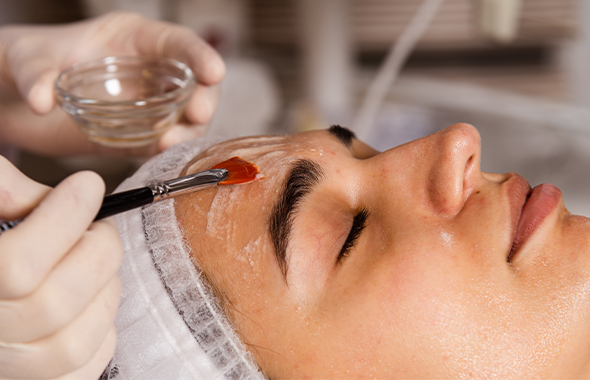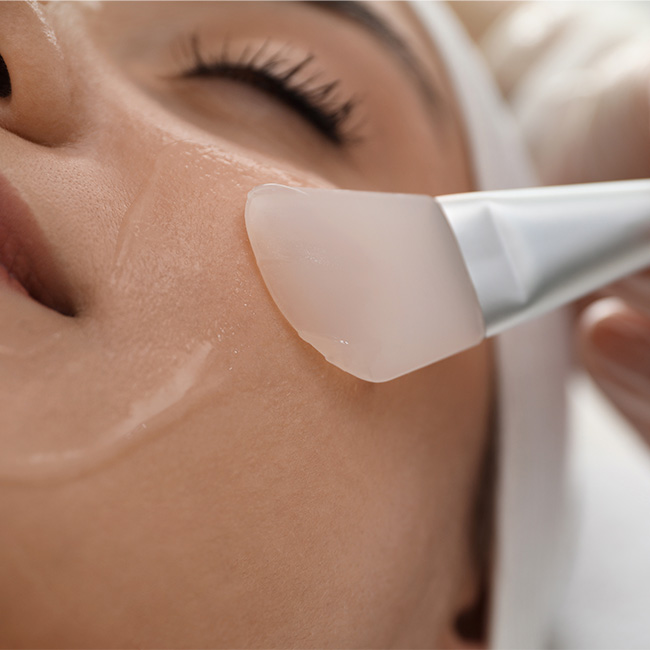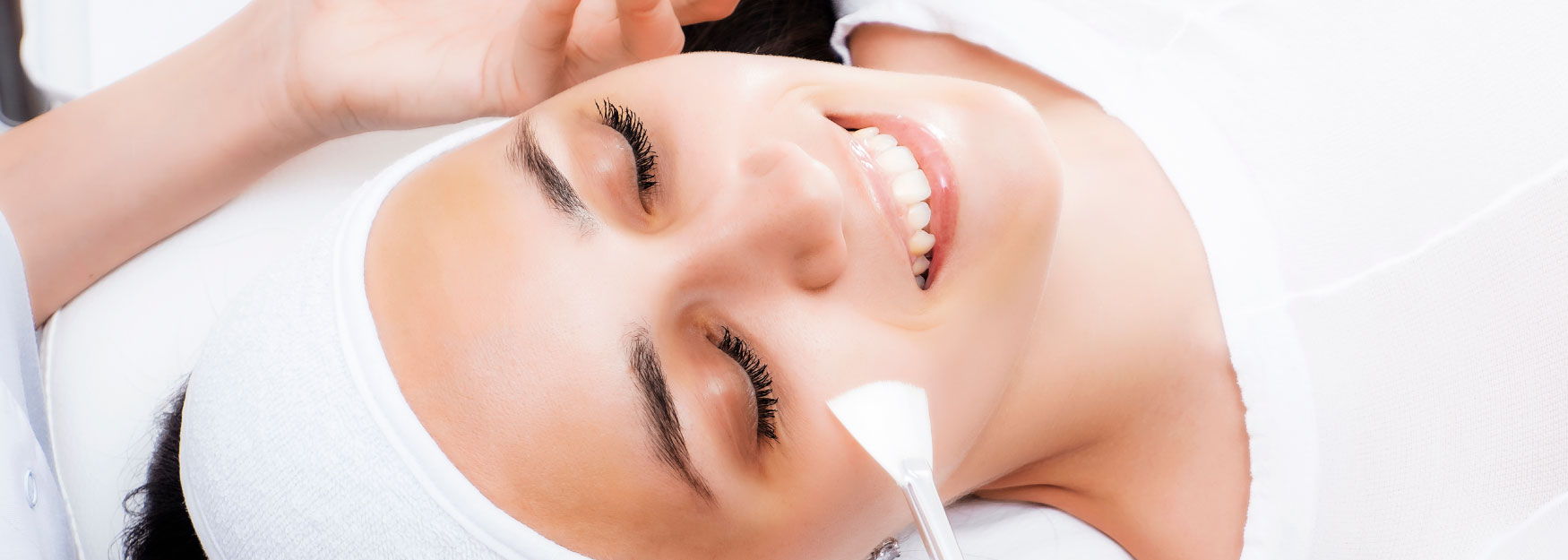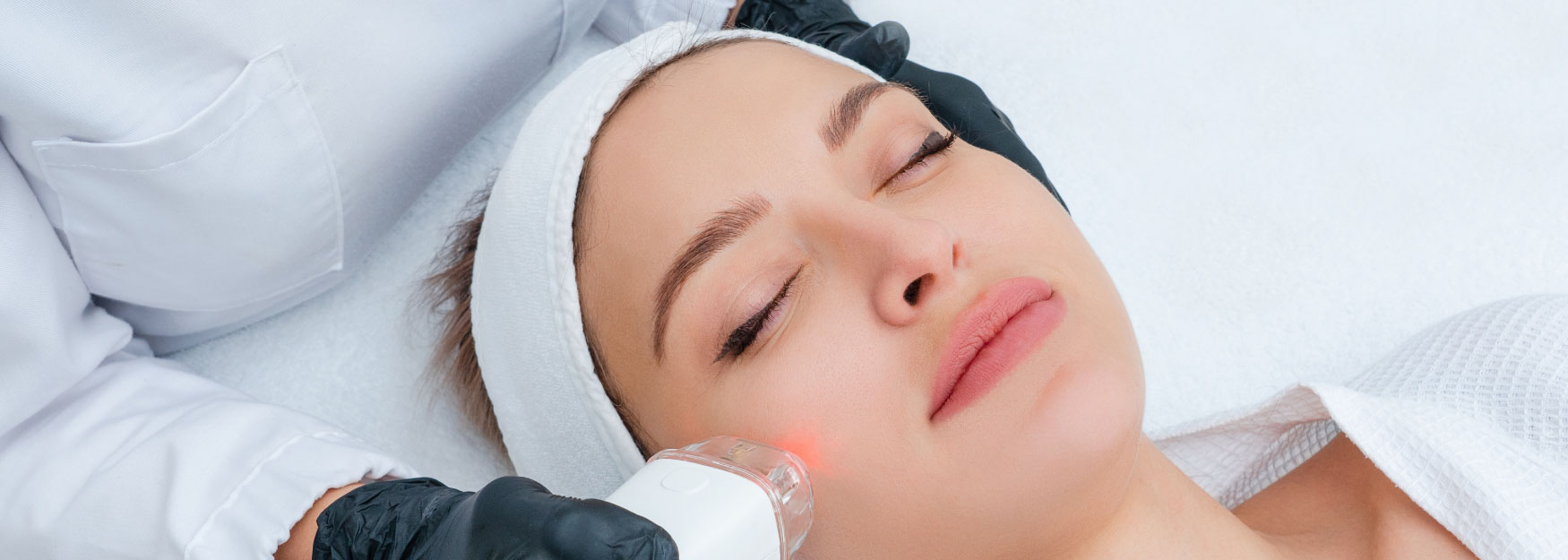Revealing Radiant Skin with Chemical Peels
Are you looking to achieve brighter, more youthful skin? Look no further than Beverly Hills Rejuvenation Center’s chemical peels. Chemical peels are a popular…
Learn More
Chemical peels are cosmetic treatments that improve the appearance of the skin and combat signs of aging. Formulated with a special chemical solution, they exfoliate the outer layers of the skin, encouraging cell turnover for a smoother, glowing complexion. At BHRC, our providers are skilled in performing all types of chemical peels to help you achieve your skin health goals. We emphasize customized treatment plans and employ a multidisciplinary approach that includes whole-body wellness through various treatments and procedures.
At BHRC, we pride ourselves on using only proven, cutting-edge treatments like chemical peels to ensure real, long-lasting results.
Our staff members are experts in performing chemical peel treatments and can share their first-hand experiences of real results.
We understand that no two patients are the same. Because of this, every chemical peel treatment plan will be customized to you and your needs, including the number of treatments needed to maintain results.
Chemical peels and IPL can both improve the appearance of the skin, but they work differently. Chemical peels use a solution to remove damaged outer layers of the skin, treating concerns such as fine lines, hyperpigmentation, uneven texture, and more. IPL uses broad-spectrum light to target pigment issues such as redness and vascular concerns without physically exfoliating the skin.
While Clear + Brilliant uses light energy to stimulate collagen production, chemical peels use a solution of acids to exfoliate the skin. Both treatments can treat a wide range of concerns, such as improving skin texture, fine lines, and early signs of aging. However, while Clear + Brilliant focuses on superficial to mid layers of skin, chemical peels may treat anywhere from the outermost layer of skin to the deeper dermis, depending on the peel depth.


“I have been coming here for about two years. I have never been one to consider doing anything aesthetic-related to improve my features. It all changed when I received a thorough consultation with the most professional and personable team of clinicians that I’ve experienced, well, ever.”
At BHRC, we offer a selection of medical-grade chemical peels to address a wide range of skin concerns and signs of aging. Our selection includes:

Medical-grade chemical peels are a fantastic option for individuals who want to remove sun damage and other minor or significant imperfections in their skin. These safety procedures can help you achieve a radiant complexion by addressing fine lines, hyperpigmentation, and freckles – without any harmful side effects!
Medical grade peels are a great alternative to laser facials and are a quick way to remove dead skin cells, fine lines, small scars, freckles, dark spots, and/or skin imperfections caused by aging, hormones, and the sun. A medical peel treatment will generally target your face, neck, and chest areas and can be performed safely by one of our professionally qualified medical estheticians. Medical peels are very effective in renewing the skin’s texture because they remove unwanted dead skin cells and force the rejuvenation of new skin, giving you the appearance of tighter, brighter skin.
Medical peels can:
After a professional practitioner evaluates your skin, we will discuss the best medical peel choice for your skin type. After treatment, you can expect your skin to look fresh, smooth, and younger.


Are you looking to achieve brighter, more youthful skin? Look no further than Beverly Hills Rejuvenation Center’s chemical peels. Chemical peels are a popular…
Learn More
If you’re looking for a way to improve your skin’s texture and tone, look no further than a chemical peel. Chemical peels are used…
Learn More
You don’t need to take drugs and use expensive creams to treat acne. Facials have a powerful ability to reduce acne without harmful chemicals….
Learn More